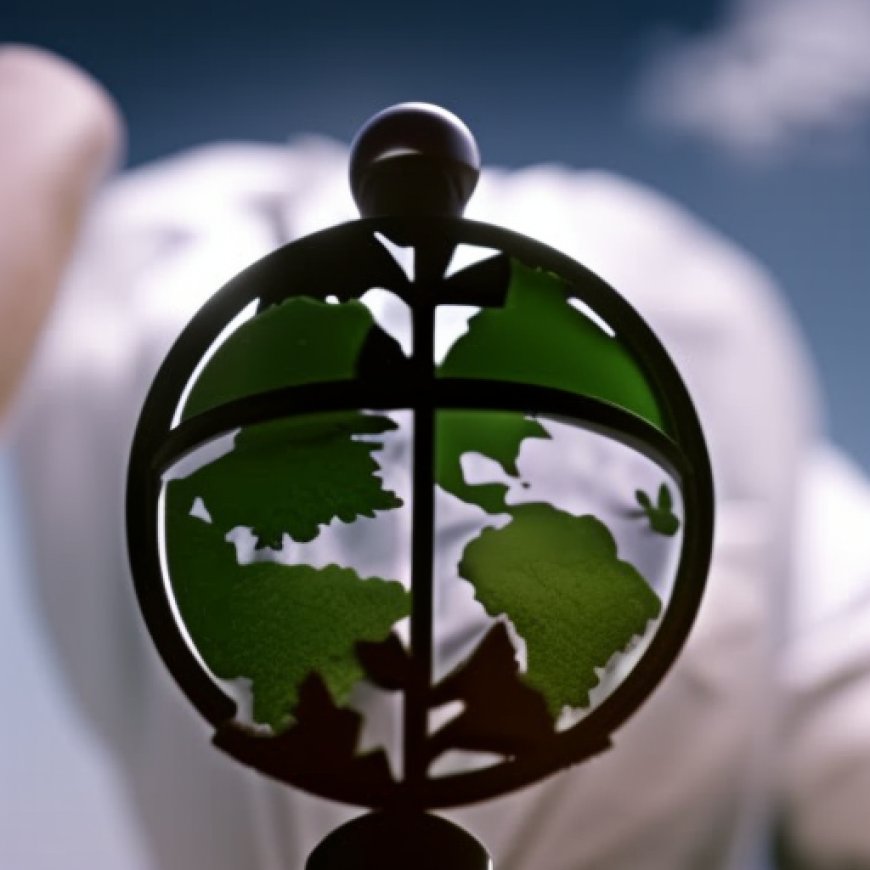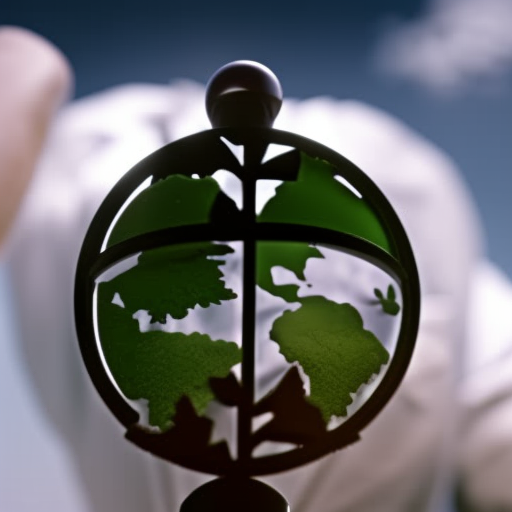European nations must protect citizens from climate change impacts, EU human rights court rules
European nations must protect citizens from climate change impacts, EU human rights court rules CBS News


Europe’s Highest Human Rights Court Rules on Climate Change Case
Strasbourg, France — Europe’s highest human rights court ruled Tuesday that its member nations have an obligation to protect their citizens from the ill effects of climate change, but it still threw out a high-profile case brought by six Portuguese youngsters aimed at forcing countries to reduce greenhouse gas emissions.
Ruling on Climate Change Protection
The European Court of Human Rights sided with more than 2,000 Swiss members of the Senior Women for Climate Protection group, who sought similar measures to the Portuguese youths, in a mixed session of judgments handed down on Tuesday. In a third case, a French mayor similarly seeking stronger government efforts to combat climate change was also defeated.
Lawyers for all three had hoped the Strasbourg court would find that national governments have a legal duty to make sure global warming is held to 1.5 degrees Celsius (2.7 degrees Fahrenheit) above pre-industrial levels, in line with the goals of the Paris climate agreement that those governments signed onto.
Emphasis on Sustainable Development Goals (SDGs)
“I really hoped that we would win against all the countries, so obviously I’m disappointed that this didn’t happen,” said 19-year-old Sofia Oliveira, one of the Portuguese plaintiffs. “But the most important thing is that the Court has said in the Swiss women’s case that governments must cut their emissions more to protect human rights. So, their win is a win for us, too, and a win for everyone!”
Positive Assessment by Greta Thunberg
Swedish climate activist Greta Thunberg agreed with that positive assessment, saying outside the European court on Tuesday that the ruling was “only the beginning of climate litigation” and noting that, “all over the world more and more people are taking their government to court, holding them responsible for their actions.”
Legal Precedent and Future Lawsuits
In a reference to its fundamental Convention of Human Rights, “the court found that Art. 8 of the Convention encompasses a right for individuals to effective protection by the state authorities from the serious adverse effects of climate change on their lives, health, well-being and quality of life.” Judgments from the European Court of Human Rights set a legal precedent against which future lawsuits would be judged in the Council of Europe’s 46 member states.
Turning Point in Climate Change Litigation
Although activists have had successes with lawsuits in domestic proceedings, this was the first time an international court ruled on climate change. “This is a turning point,” said Corina Heri, an expert in climate change litigation at the University of Zurich. She said Tuesday’s decision confirmed for the first time that countries have an obligation to protect people from the effects of climate change and will open the door to more legal challenges.
Increasing Use of Courts to Tackle Climate Change
Activists have increasingly turned to courts to force efforts by governments to tackle climate change. In August 2023, a Montana court ruled — in a first-of-its-kind trial in the U.S. — in favor of a group of young activists who had accused state agencies of violating their rights to a clean environment.
Impact on Sustainable Development Goals (SDGs)
The decisions have “the potential to be a watershed moment in the global fight for a livable future. A victory for any of the three cases would be one of the most significant developments on climate change since the signing of the Paris Agreement” said Gerry Liston, a lawyer with the Global Legal Action Network, which is supporting the Portuguese students.
Challenges in Meeting Climate Goals
The European Union, which doesn’t include Switzerland, currently has a target to be climate-neutral by 2050. Many governments have said that meeting a 2030 goal would be economically unattainable.
Importance of Urgent Action
But judges ruled in favor of a group of Swiss retirees also demanding their government do more. Senior Women for Climate Protection, whose average age is 74, say older women’s rights are especially infringed on because they are most affected by the extreme heat that will become more frequent due to global warming.
Conclusion
Acknowledging the urgency of the climate crisis, the court fast-tracked all three cases, including a rare move allowing the Portuguese case to bypass domestic legal proceedings.
SDGs, Targets, and Indicators
1. Which SDGs are addressed or connected to the issues highlighted in the article?
- SDG 13: Climate Action
- SDG 3: Good Health and Well-being
- SDG 6: Clean Water and Sanitation
2. What specific targets under those SDGs can be identified based on the article’s content?
- SDG 13.1: Strengthen resilience and adaptive capacity to climate-related hazards and natural disasters
- SDG 13.2: Integrate climate change measures into national policies, strategies, and planning
- SDG 13.3: Improve education, awareness-raising, and human and institutional capacity on climate change mitigation, adaptation, impact reduction, and early warning
- SDG 3.9: Substantially reduce the number of deaths and illnesses from hazardous chemicals and air, water, and soil pollution and contamination
- SDG 6.1: Achieve universal and equitable access to safe and affordable drinking water for all
- SDG 6.2: Achieve access to adequate and equitable sanitation and hygiene for all
3. Are there any indicators mentioned or implied in the article that can be used to measure progress towards the identified targets?
- Indicator: Reduction in greenhouse gas emissions
- Indicator: Increase in government efforts to combat climate change
- Indicator: Protection of human rights from the adverse effects of climate change
- Indicator: Increase in legal challenges and climate litigation
- Indicator: Progress towards climate neutrality by 2050
- Indicator: Reduction in emissions by at least 25% by 2020
SDGs, Targets, and Indicators Table
| SDGs | Targets | Indicators |
|---|---|---|
| SDG 13: Climate Action | 13.1: Strengthen resilience and adaptive capacity to climate-related hazards and natural disasters 13.2: Integrate climate change measures into national policies, strategies, and planning 13.3: Improve education, awareness-raising, and human and institutional capacity on climate change mitigation, adaptation, impact reduction, and early warning |
– Reduction in greenhouse gas emissions – Increase in government efforts to combat climate change – Protection of human rights from the adverse effects of climate change – Increase in legal challenges and climate litigation |
| SDG 3: Good Health and Well-being | 3.9: Substantially reduce the number of deaths and illnesses from hazardous chemicals and air, water, and soil pollution and contamination | – Protection of human rights from the adverse effects of climate change |
| SDG 6: Clean Water and Sanitation | 6.1: Achieve universal and equitable access to safe and affordable drinking water for all 6.2: Achieve access to adequate and equitable sanitation and hygiene for all |
– Protection of human rights from the adverse effects of climate change |
Behold! This splendid article springs forth from the wellspring of knowledge, shaped by a wondrous proprietary AI technology that delved into a vast ocean of data, illuminating the path towards the Sustainable Development Goals. Remember that all rights are reserved by SDG Investors LLC, empowering us to champion progress together.
Source: cbsnews.com

Join us, as fellow seekers of change, on a transformative journey at https://sdgtalks.ai/welcome, where you can become a member and actively contribute to shaping a brighter future.







